Curious about how to work with and find a literary agent? Have you ever wondered what a literary agent does? I had no idea before meeting Kimberly Brower. In 2015, when writing a book wasn't even on my radar, she slid into my DMs and asked if I'd ever consider writing a book. Fast forward 5 years, and here I am—two bestselling books later—and Kimberly has played a HUGE role in this journey. I just love working with her.
She's behind the scenes negotiating, reading and just demystifying all the contracts that we get from our publisher, making sure I'm following up on my deadlines and meeting deadlines. And we now have our third book in the works with Ten Speed Press.
In this episode we talk about what goes into finding a literary agent, how you would find a literary agent, what an agent does for an author, the pros and cons of self publishing versus traditional and all of that good literary stuff.
Tell us about you and what you do!
Kimberly: (02:23) My name is Kimberly Brower and I own a boutique literary agency based out of New York. We represent authors and basically help sell their rights, whether it's domestically or internationally and any of their subsidiary rights as well.
I've been a literary agent since 2014 but I started my own agency in 2016.
Why would somebody need to have a literary agent?
Kimberly: (03:10) So the word need is probably misleading. I don't think anyone needs a literary agent, but I think there are extreme benefits to having a literary agent. And the reason being is kind of what I just said, we represent author and selling their rights to publishers, internationally with foreign publishers like translation rights of film, TV (that's a little bit more for like the fiction nonfiction side).
And the reason that that's beneficial is because it is our job as the literary agent to know what standard practices are, what the standard pay rate is, what the standard advances are, contracts, contract clauses, non-compete option agreements… Just things that people wouldn't even think of. I think basics you think of how much money am I going to get and what do I have to do? And that, I think, is the easy part. There's a lot ancillary as well, and I know you've done that with Julie and I'm sure it's similar in that while you may not need that, you want that to get that help. And then also the exposure to big five publishing houses as well and not just small practice.
Is it easier for authors to get a publishing book deal if they are represented by a literary agent?
Kimberly: (04:54) Yes, I actually believe so. Traditionally that big five—which is Penguin Random House, Simon Schuster, Hachette Book Group, McMillan, and HarperCollins. Those are what we consider the big five publishing houses. They're all based out of New York. And they have a lot of arms and branches within that, but this is a big five. They are normally closed, unsolicited queries or submissions, which means the only people that do have access to those editors are people with agents.
So there's that advantage to just getting seen by what some say are the best of the best publishers out there. I don't want to say that anyone that's not in the big five is not good because I've worked with many other publishing houses that are not part of the big five that are fantastic and amazing and some are closed to unsolicited submissions and some are open to non-agency submission. It just varies for each publishing house.
Related: International Book Tour: A Peek Inside What It's Really Like
What goes into the decision to represent an author?
Kimberly: (10:08) Your platform and your reach does matter and is taken into consideration. However, I think in terms of an agent, when we're looking at creatives, is there something different, unique, exciting that isn't on the market? So it's our job to know what is selling, what publishers are looking for and finding talent, finding people that have a unique voice. It doesn't have to be the most original thing. I mean there are other watercolor books out there for example, but your take on it and the way you present yourself and the way you did it just makes it more unique and it was just an exciting avenue to explore for that. So I think in terms of what I look for in representing an author is, Is there a market for this? And does this person have really good branding? Do they post frequently, do they not post frequently? Factors like that come into play.
Do publishing houses ask to look at social media and email list info?
Kimberly: (12.37) Yes, and the interesting thing is… So I represent a lot of fiction authors and it's actually the complete opposite than when I represent creatives or someone who's doing nonfiction. It's actually the polar opposite. So if you are telling me, Oh, I'm writing a book about World War II, I wouldn't care at all about your platform. I only care about the book and the content in the book. Whereas for creatives, not only do I care about content, I would automatically add social media information because I think, especially if something is very visual, I think it is… I remember actually when I took you on submission, editors would go and one of the first things they say to me is like, I love her Instagram page. I think that even if I didn't include it, they would naturally try to find it.
Jenna: And that's what's interest interesting, too, about our story is because we originally set out to do the whole coloring book thing, but I think it was Ten Speed Press that was like, Hey, we're not interested in doing a coloring book, but we saw her Instagram. Would she be interested in doing a watercolor book? Is that right?
Kimberly: Yes. That is exactly right. At first they expressed interest in you in general. And then they said after further research, yeah, I'd rather do a watercolor book with her. Is she open to that? I don't even think there was anything including watercolor and then a link to your website and Instagram.
How does it all unfold when a publisher wants to sign on a deal with an author? Can you take us through the steps?
Kimberly: (15:13) So they would make an offer and then we would go back and forth, meaning I would go to the author and then hear what they thought and go back and forth, negotiating the major terms like advance, royalties, non-compete, delivery date, things like that.
And then once we can agree on that, it goes to contract phase where I work with legal and legal and I go back and forth for the written contract and that's something more I deal with in terms of like the legal-ese language of it. And those are just like termination—just things that probably authors are kind of like, I don't know. Like I feel like if I were to ask, they'd be like, I don't know what to do, tell me. So then it goes to the paper contract and like I said, it's very different going from a book like yours, a creative book versus a fiction manuscript.
But with you, I kind of feel I took a back seat to your manuscript and your art because I felt I was in no position to judge the way you are doing it. I was not going to say, That's not how you paint that flower. So I kind of took a back seat in that aspect because I, for lack of a better word, knew my role in it and I trusted that you knew how to explain what you wanted to get across the page.
And then you worked with the editor. As an agent, for me, I do like being on all the calls and I keep reminders like, Hey, there's a deadline coming… Is there gonna be any problem? Or if there's any problems on the author side, if an author's unhappy or like I can't meet this deadline. Basically all bad news just come from your agent. So that's also another plus… You kind of don't have to be the one to break news and be like, I can't do this. And hopefully your agent can help problem-solve situations and give options and just talk you through the different options you might have. Which is something you and I have done in the past, which luckily it's worked really well. Knock on wood. So it's more of an intermediary kind of thing.
And then there's also a side which you and I haven't done this yet. But there's the subright side, which is foreign translation rights. So your book is published in a lot of foreign countries, but there are also a lot of countries it's not sold in yet, and I do think after a certain time I can take a more active role in that. So there is that side and that's all stuff that really, as an author, you're not really doing anything. You're like, I did the work, I wrote that book like three years ago. I'm done. You're just telling me someone wants to give me money. Sure.
It's more of like an administrative role that I feel like it takes on after you turn in all your files and then you worked with marketing. So it's just, I'm the one that while you've moved on from the book, I'm still keeping track of a lot of things like royalties. So I'm just handling things on the business side and just sending you money.
How would somebody find a literary agent?
Kimberly: (20:51) Find books that are similar to the book you want to write. So for example, if you wanted to find who is Jenna represented by, you could probably go to her book and open it and say that she mentioned her agent in there. It's like something you don't really think about. But usually if you ever want to find out someone has an agent, you can either go to their website, you can sometimes contact your favorite author and ask, but I'm sure if you even search or even look in the back of their book. I have a lot of people find out who people's agents are in the back of a book, surprisingly. And Google works really well too.
That's the easy non research way of going about it. It's more of a organic way I feel like. Like if you're like, Oh I have this person books, I really love all their books…Use their agent! Because at least you know, they work in that field and they've worked in that space.
But a more research oriented place… There are places like Writer's Digest. There is something called Query Tracker. Also Google surprisingly… I bet if you wrote Who are the top literary agents for nonfiction watercolor books? Google is a beautiful place. Sometimes it's scary too, but it also can really help. But that probably is like a really intimidating answer in that there is no one place to find this one agent.
A lot of people on Twitter and Instagram do sometimes write repped by…I'm sure if people went to your page and was like, who's Jenna's licensing agent, they'd be able to find it by watching some of your videos. You know what I mean? Like I feel like you don't hide things like that and you're very open. And I feel like if someone were to DM you and ask you, you'd be very open to sharing that information. Maybe just even saying the person's name. I feel like I don't think people would be intimidated or bothered if someone were to ask.
So if you see someone that has a book, you can ask, you could do your own research. It's not hidden information. I guess. That's my answer.
What should somebody do if they're contacted by a literary agent? What are the next steps?
Kimberly: (25:46) I think that's a really great question in that I think creatives are probably more likely than not contacted by a literary agent than vice versa if I'm being honest. Just because there are literary agents that scout or like go through Instagram to look for “the next big thing,” the next fresh thing, the next new thing. So it happens a lot, I bet.
I think the first thing you do is you want to ask questions. You do not want to sign anything right away. You want to ask questions, you want to do your own research first. See what they represent, who they represent, and I think I was really honest with you, or I hope I was with you and I was like, Look, I don't represent these kinds of books, but I know people that want them (like meaning editors and publishing houses) and I know what it's gonna take to do it. So if you want to try, let's try.
I hope I was honest with you and hopefully other agents are as honest in that because there are times where I go through Instagram and I'm like, Oh, this would be so interesting to be in a book because I know a lot of editors looking for that type of nonfiction, that kind of content. So I would definitely do your research.
I would ask, especially if they do books that are similar to what you would do, I would be, Hey, would it be okay if I reach out to your other clients? I would just give the agent a heads up. You could do it anyway without telling them. Obviously if they say no, that's a red flag. So I don't know many agents that would say no, you can't talk to any of my clients. Talking to other clients is really helpful, seeing what other books they help sell, that kind of thing. Definitely do research. I would just say if an agent contacts you, to not immediately sign on the dotted line. I would not recommend that at all.
I would definitely do your research, ask around and you might even have to say no to that person if it's not the right fit. And I actually have conversations with them… Ask them questions like what do you see, what do you see for this book? Like what's the vision? Because you obviously want to have help in formulating a proposal, formulating a theme of the book. So if you do watercolor for example, and they're like, well, wouldn't it be cool if you like painted with oil? And you'd be like, I don't really do that. Yeah, you kind of get a sense of: Do they know your work? Do you think they are going to be the best advocate for you?
What would suggest to somebody if they are contacted directly by a publisher?
Kimberly: (29:44) I would never say you 100% need a literary agent. There are ways around it if you don't want to go through it. I mean there are many people even that write novels that get told no, that get turned down by literary agents all the time, unfortunately. So I don't want people to feel that going to a publisher directly, especially if they contacted you and are interested in your work that you shouldn't do it, cause that's not the answer. I would, if you feel more comfortable, I would try to find a literary agent and see, Is there somebody? Do I have friends that maybe have literary agents that they can recommend their agents to help me?
Another option is getting an IP or an entertainment lawyer to help as well. That's another alternative. They might not know the standards, but at least you know your contract is… You're not signing away your life pretty much. I do not recommend working directly with the publisher and negotiating your deal and doing a contract… Obviously if you're an attorney already, maybe that's the exception, but as a whole I do not recommend you working with a publisher directly. And that's not saying every publisher is out to get you or take advantage of you. It's just there are some things that an agent and/or a lawyer would know.
What are the pros and cons of traditional publishing vs. self publishing?
Kimberly: (32:28) This is a great question. So the pros of traditional publishing is exposure. Obviously with those traditional publishers you would hopefully have connections with retailers. And I don't even mean retailers like Barnes and Noble, Amazon, the big book sellers or the indie book sellers, but books are sold in places you don't even realize like Michaels or other places, especially if you're a creative, that matters.
And so working with a traditional publisher, they have that reach and you don't have to do anything. Like you don't need to know who the buyer is at Walmart or at Michael's or at Barnes and Noble. There's a whole sales team in the publishing house that sells your book and you just sit back and you just write your manuscript, do your art or whatever medium it is and that's it. I don't want to say done. Obviously there's the marketing part. You don't really need to do much else. You also do not have to spend any of your own money, which is a pro for traditional publishing as well. It's less risk for yourself. I feel like those are the two biggest pros for traditional publishing.
On the flip side, pros for self publishing is you have complete control over what the content is, over when you want to release it. So if you wanted to write a book and you want it to put it out next month, you could, of you want to put it out in two years, you could. It's totally up to you. You're working on your own deadlines, or self-imposed deadlines. There's no one kind of over your shoulder being like, Are you painting? Are you doing this?
I actually think that's probably the biggest pro for self publishing is the complete control. And I'm sure creatives, that's very important in terms of what they're doing, regardless of the medium, I'm sure that is very important to them and you never want to be edited in terms of like, You can't do it that way!, especially if that's how you do it and that's how you communicate.
And I feel like there's a direct connection—when you self publish—to the consumer, for some reason because you're the one doing it…your bread and butter. It's almost like selling something out of the trunk of your car and… that made it seem so seedy, but I don't mean it that way. But if you are on the ground, no one can promote yourself more than you, I think that's my point.
And then in terms of cons of both… The con of traditional publishing is probably what the pro of self publishing is. There's deadlines, there's a lot of people that your management needs to be approved by, you're questioned a lot. It's a lot. It's a time aspect of it. And then a con of self publishing is probably like what the pro of traditional is and the fact that you have to pay your own money. Like you're paying for everything.
And you have to make sure, like the paper. I'm sure for creatives this matters more than if someone just wrote a novel on Microsoft Word. You have to make sure like the paper is being printed, display your products the way you want… I remember when you were going through it, you got mailed a couple of different… There's just a lot of quality control for creatives I think a traditional publisher handles in a way that most people don't even think of think of it and you're like, Oh, I do care about what type of paper a book is made out of. Whereas you might be limited, especially on a budget, in self-publishing on what type of stuff you are using.
Kimberly: (39:14) I don't want to make it seem that traditional is always the right answer. I think you really need to ask yourself what your goals are, what is important to you, how much time you have. For you, I think it was really great because it took a lot of the responsibility of ancillary things so you could focus on your business, which was your primary income which was you actually producing work, you know what I mean? That is how you make income. So taking time out to all day spend on figuring out what paper to use, like it just would eat into your time to produce income. But some people aren't in those situations. It's very personal to each person and there's no wrong or right answer. I just think you need to ask yourself those hard questions before making the decision.
SUCH great insights to the book writing process, amiright? You can connect with Kimberly through her website, Bower Literary, Twitter, and Instagram.
Let me know in the comments below—would you ever consider writing a book?! What would it be about?
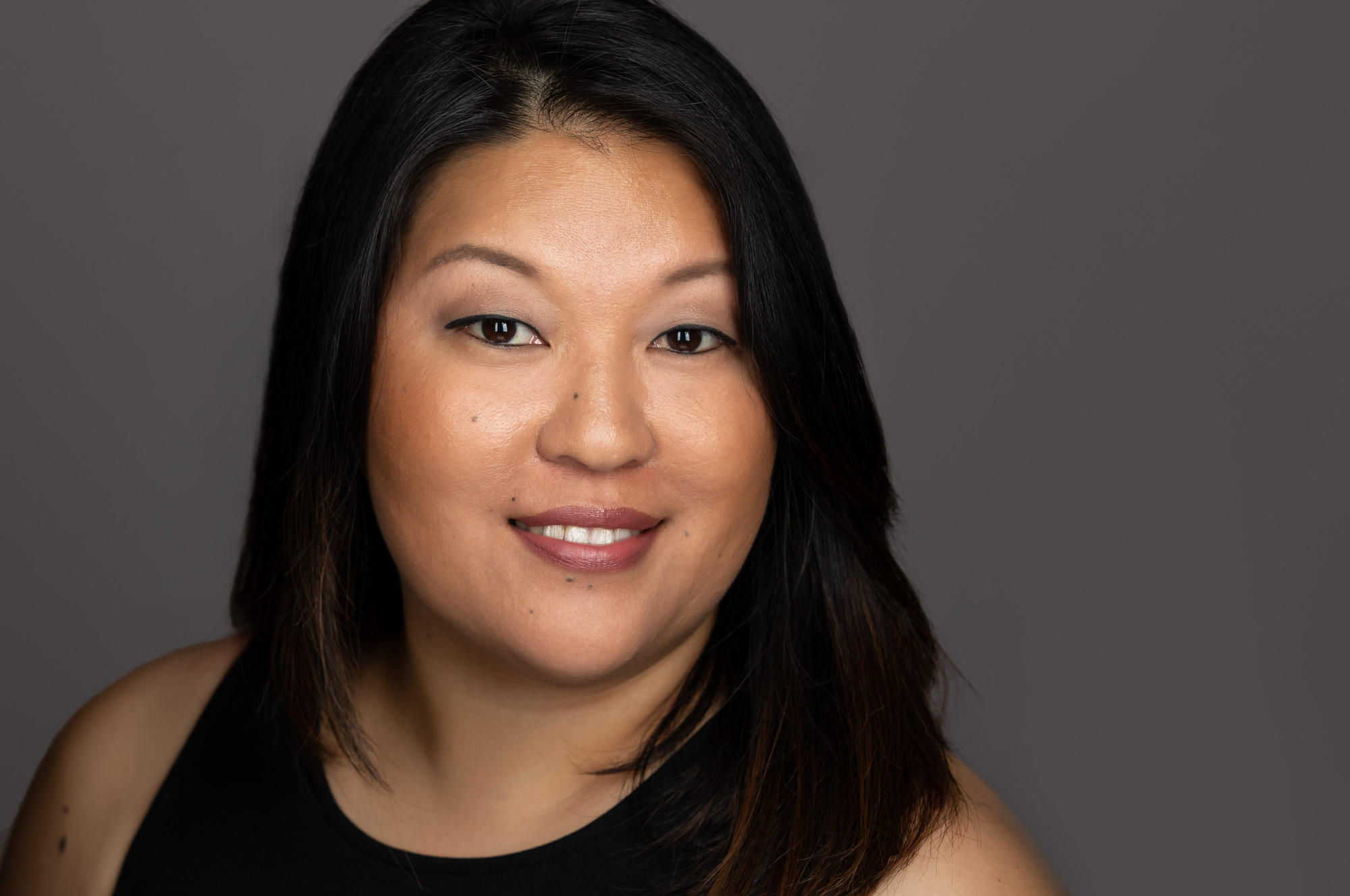
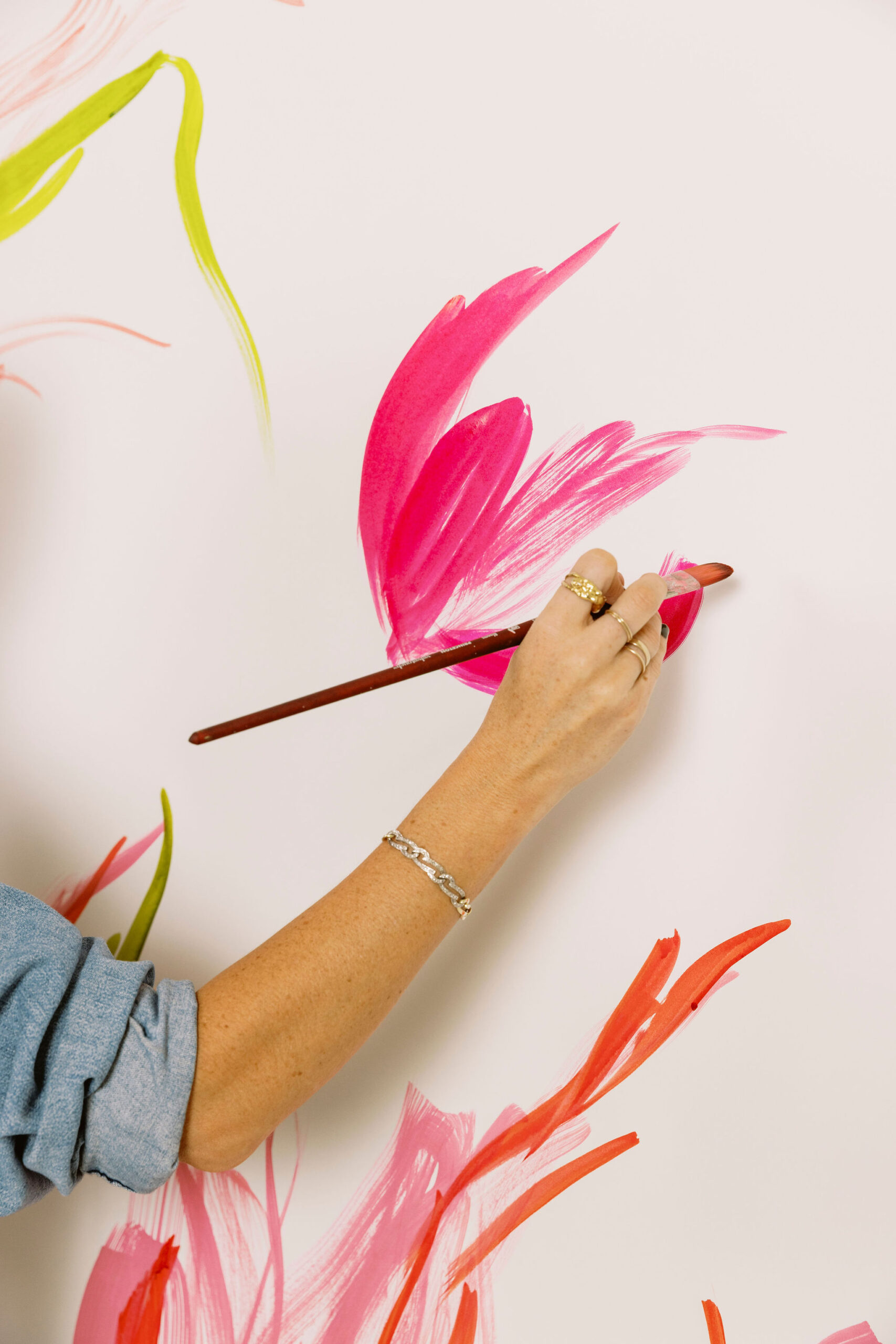
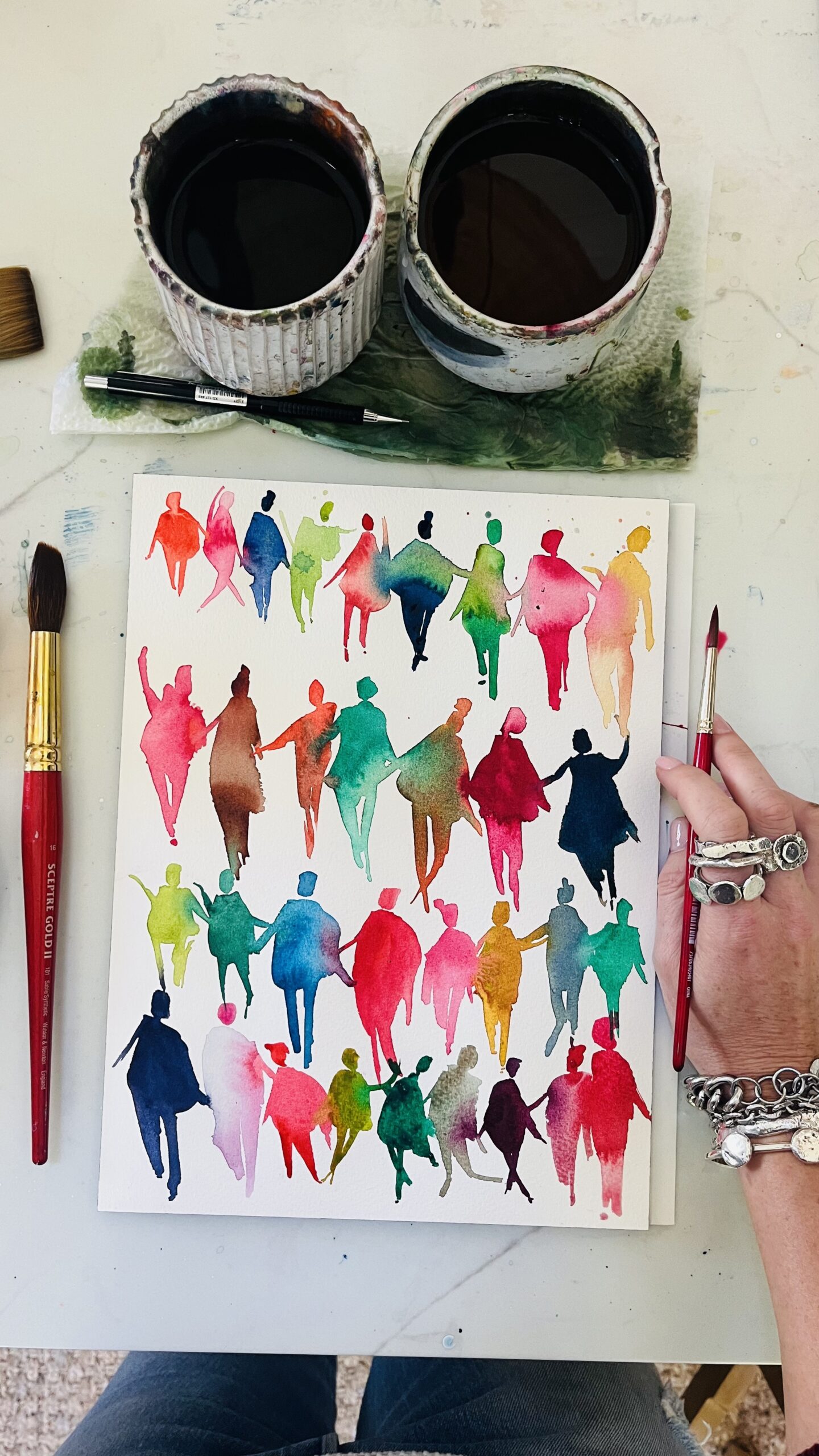
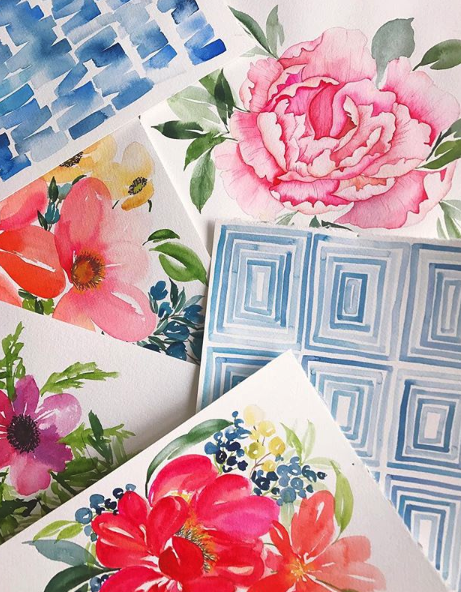

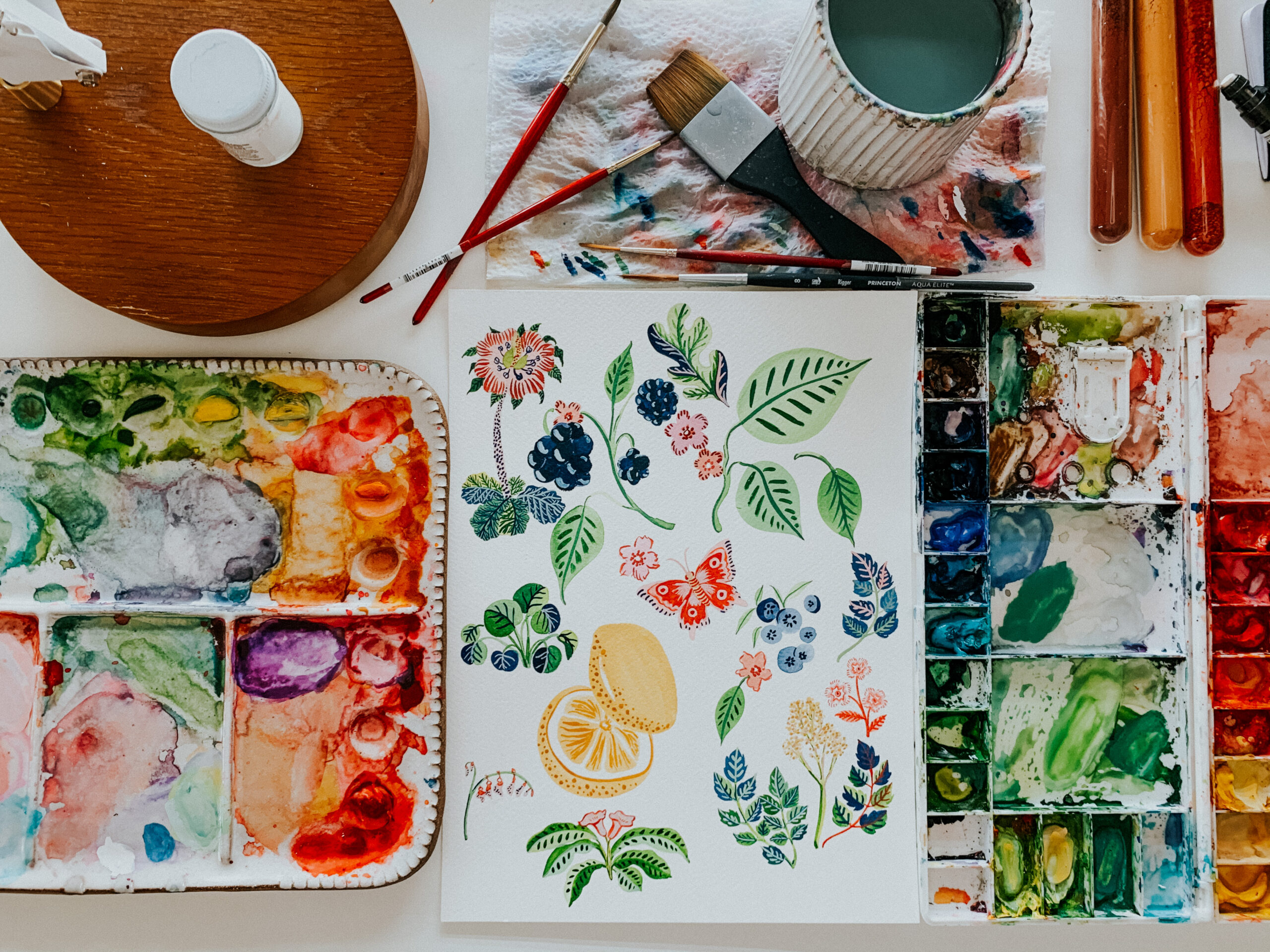
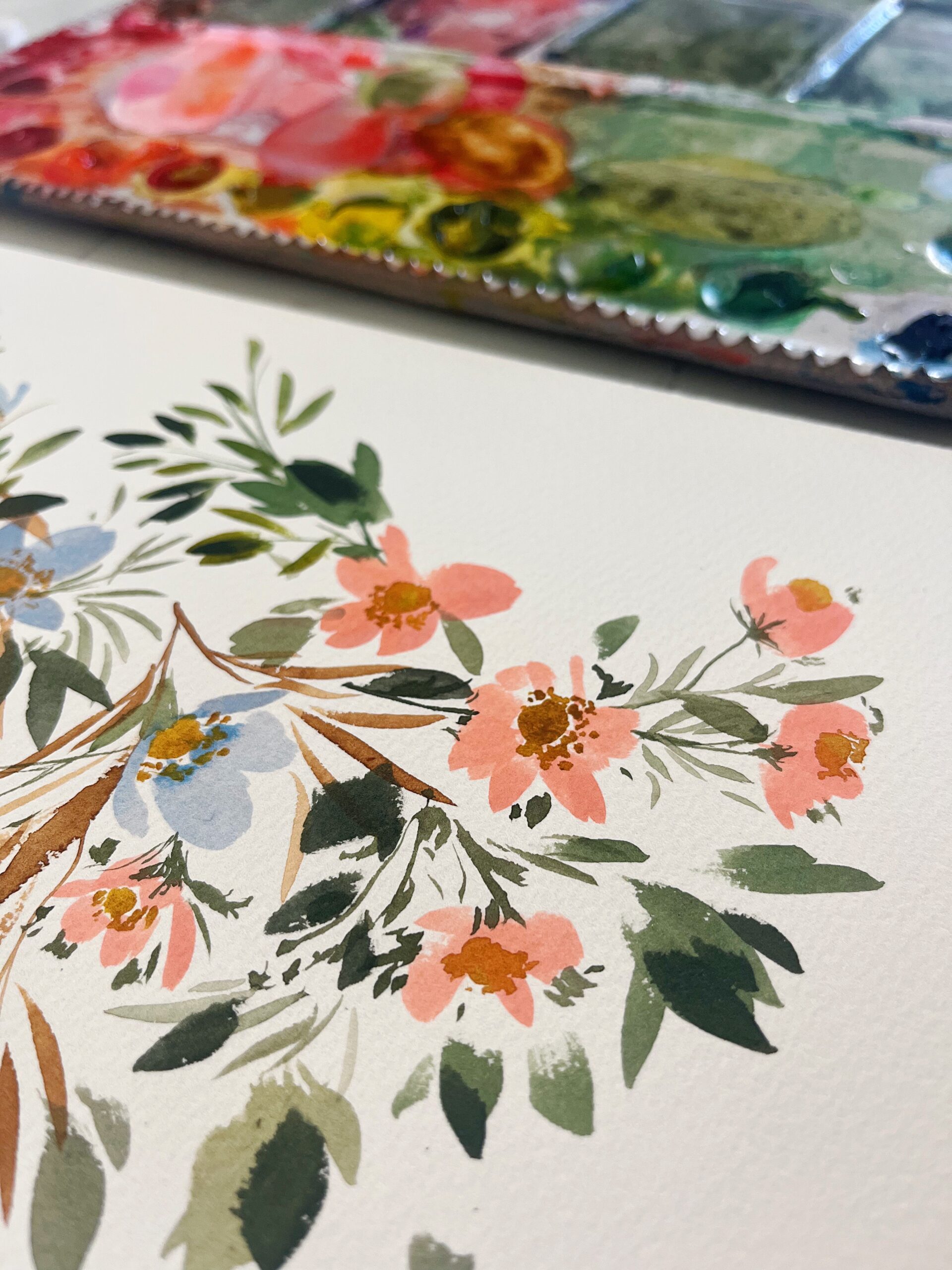
+ show Comments
- Hide Comments
add a comment